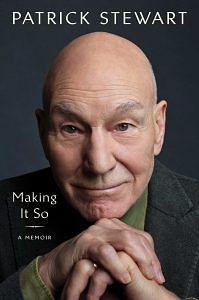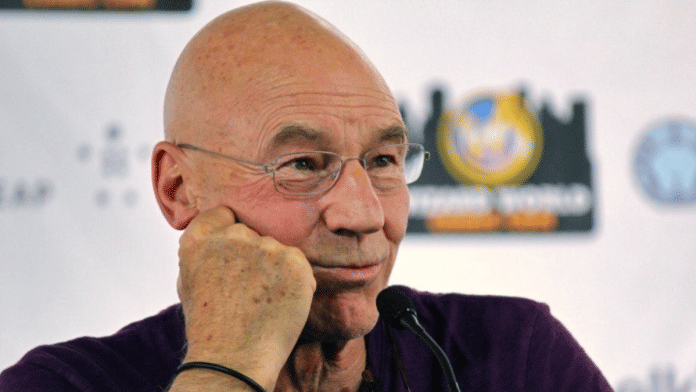One day, something happened at t’bottom field that left me shaken. A few of us had been kicking a ball around when I spotted a squirrel darting up the branch of a tree. We all stopped and stood in wonder, observing this creature with delight, because squirrels were rare where we lived. Then there was a shout from an older boy who was walking toward us. He wanted to know what we were looking at, and we pointed to the little creature in the tree. It was then that I saw he was carrying an air rifle, which he lifted and pointed. I yelled “No!” but it was too late – he had pulled the trigger. The squirrel was hit and began sliding down the tree’s trunk. It dug its claws into the bark and temporarily broke its fall. But it couldn’t hold on. Scratching desperately at the trunk, it slipped farther and farther down, until it fell with a gentle thump onto the grass and lay still.
I turned and ran frantically away from the scene, over the wall and up Camm Lane to our house. Crashing through the door, I encountered my mam, just home from the mill, looking at me with alarm. I threw my arms round her and howled. Eventually, after I’d calmed down a bit, I told her what I had witnessed. It was the first time I had ever seen a living creature die. Mam held me tight and calmed me, wiping away my tears.
But I was not a softy as a boy. I couldn’t afford to be. Where I came from, if you weren’t tough on the playground, you became a target for bullying. At times, I was one of the bullies, which I regret to this day. There was a lad in our class who had a deformed hand: a small lump of skin and bone with tiny stubs for fingers, and only three of them. We would surround him and threaten him with violence if he didn’t hammer his hand against the stone wall until it was bloody, just for our cruel amusement. When he obliged and we were all satisfied, we would give him a shove onto the cobbles and run off laughing. I look back upon this behaviour with deep shame.
But the squirrel incident must have spoken to a more empathetic side of me. As I reflect upon it now, I realise that it was not the squirrel’s death that elicited my tears but its desperation as it scrabbled to cling to the tree. I sensed the terror the poor creature was feeling, and this induced terror in me. I suspect that it’s exactly this identification with others’ fears and feelings that led me, eventually, into wanting to act.
This empathy would soon come into play with regard to my consoler in the squirrel incident, my mother. I do not have a specific memory of my father’s homecoming, but suddenly Dad was among us in 17 Camm Lane, and it was clear to my brother Trevor and me that he was not happy to be there.
Finding a new job, the right job, was not easy for him. There was nothing available that could possibly have made up for the status he’d held in the army as a figure of immense responsibility and respect. When he first got home, he was basically an itinerant labourer: digging trenches, mixing cement, unloading lorries. Taking orders rather than giving them. Later on, he worked as a painter at the massive Imperial Chemical Industries plant on Leeds Road in nearby Huddersfield. I am convinced his health suffered from whatever he was inhaling at this workplace. His lungs had already been weakened by two bouts of malaria in India, and he smelled vile when he came home from work, before he peeled off his overalls.
In the world of acting, many individuals face challenges that shape their careers. For instance, the journey of Persis Khambatta, who boldly went bald for her role in Star Trek, showcases the lengths to which actors will go to embody their characters.
By contrast, my mother took immense pride in her work at the weaving sheds. I only visited her there once, and I was made uneasy by the loud, clanking machinery and the smell of dyes and exhaust. But I saw how brightly Mam went about her day in that not-bright place, wearing a long grey cotton coat, her hair pinned up and wrapped in a turban-like covering. It wasn’t just the satisfaction of an honest day’s work; it was also the camaraderie, the pleasure she and her female coworkers took in each other’s company. After the army, Dad simply never knew that feeling.
My father only struck me once. It didn’t really hurt, but it was humiliating enough to leave a lasting impression. Soon after he had been demobbed, we went as a family on holiday to Blackpool. One day we were walking along the promenade when my father spotted a fruit-and-vegetable shop. He said, “There’s something I need to pick up there, but you go on walking. I’ll catch up.” Soon enough he returned to us, holding something in his hands behind his back. “Patrick, close your eyes and hold your hands out,” he said.
I did what I was told. What I felt was something alien and strange in texture, fuzzy and slightly soft. It could have been some kind of little creature. I yanked my hands away and the object fell to the ground. I opened my eye. It was something I had never before seen: a peach. Only now, it was on the pavement, smashed to bits on impact.
My father had been stationed in warm-weather countries and knew all about the delights of a fresh peach. Had I followed his script, I would have regarded the fruit quizzically, asking, “Dad, what’s this?” and he would have said, “Why, it’s a peach, Patrick. Enjoy!” Then I would have taken a bite and smiled in rapturous gratitude. That was what he was looking forward to. But I had gone and fucked it up.
My father was furious. With an open hand, he delivered a heavy slap to my head. The promenade was busy, and many people saw him strike me. No one intervened, though Dad received some scornful looks. As for me, I was fine physically but mortified inside – both at disappointing my father and at having all of those strangers’ eyes upon me.
 This excerpt from Patrick Stewart’s Making It So has been published with permission from Simon & Schuster.
This excerpt from Patrick Stewart’s Making It So has been published with permission from Simon & Schuster.






